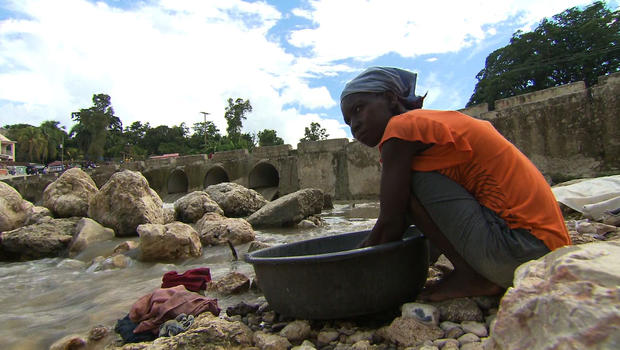Four years after earthquake, Haiti says it's making comeback
It's been four years since the worst natural disaster in the history of the Western Hemisphere On Sunday, Haitians held solemn remembrances in Port-au-Prince.
The earthquake in 2010 killed more than 100,000, did $13 billion in damage and left an already strained country fractured wide open.
But today, as we discovered in a recent visit, there are changes taking place that might surprise you.
"We have enormous potential for tourism and this is something that Haiti has not been seen as a tourism destination before, because they thought more of our shortfalls than of our assets," said Haitian Prime Minister Laurent Lamothe.
Lamothe believes Haiti has some of the best beaches in the world, which is why the country is putting up four new airports, as well as billboards across Miami.
"If you take Haiti's security, for example, right now we are one of the safest destinations in the Caribbean," Lamothe said. “So why is Haiti always seen as not doing well in tourism? Because we don't have enough tourist attraction points."
Lamothe and President Michel Martelly both have unconventional backgrounds for politicians. Martelly is a former musician and club owner. Lamothe was a telecommunications executive who is now dating a supermodel. They gave Haiti's recovery a catchy title: “Haiti’s Open for Business.”
Is business the way back for Haiti?
"Well, business is a way to create jobs," said Lamothe. "'Haiti’s Open for Business' is a way for us to take care of the poorest in Haiti by creating jobs, by attracting foreign investment."
Still, enormous challenges remain. The Martelly government has faced a string of protests in recent weeks from opposition parties and unions. A cholera epidemic has highlighted Haiti's horrendous water system. And more than 100,000 people who lost their homes remain in tent camps.
What the administration says Haiti needs most is more money. Lamothe told CBS News that nearly half of the financial aid pledged to Haiti after the earthquake has not been paid.
"The country is slowly getting back on its feet," Lamothe said. "We were 50 stories underground after the earthquake. Right now we are 20 stories underground. We still have much to do."
